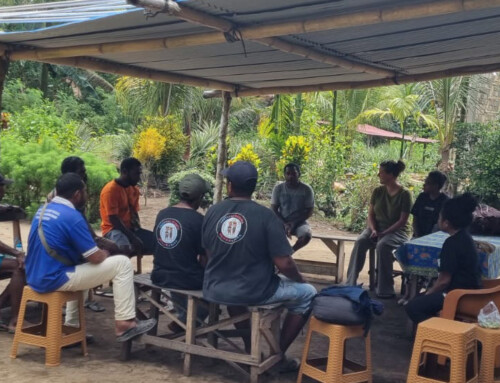
During her trip to Papua last year, colleague Sophie Schreurs visited a catfish farm in Sorong. The farm is run by refugees from Maibrat who sought refuge in the city two years ago. Catfish is an affordable and nutritious freshwater fish for people with limited budgets. With the help of online videos, the initiators managed to get the farm operational. However, they are now facing obstacles: fish feed is expensive, and the survival rate of farmed fish eggs is low.
Hapin sought advice from Wageningen University: Can the entire process, from breeding to selling, be made more efficient and cost-effective, and more profitable? As a result, six Wageningen students conducted research for two months, using literature and interviews with (local) experts.
The results are impressive and offer actionable insights. The depth of the ponds and the temperature of the water are very important. Additionally, fish feed can easily be enriched with locally available resources: worms, eggs, and dried spinach. Recipes have also been developed so that fish feed can be completely homemade in the future. Lower expenses mean higher income.
We are proud of the students who were able to empathize with the living conditions of this refugee community in Sorong. They, in turn, reported that they enjoyed working on the research. Now, it is up to Hapin and the initiators of the catfish farm to implement the results in practice.








